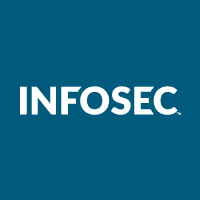Cisco Certified Network Associate (CCNA) Exam: Everything you need to know
Congratulations on taking the leap toward CCNA certification. This entry-level cert is an industry benchmark that widens your skillset and opens employment possibilities.
The Cisco Certified Network Associate (CCNA) exam tests your foundational networking knowledge. This article explains the format, passing score, cost and where to take the CCNA certification exam. We will also explain recent changes to the Cisco certification program.
Earn your CCNA, guaranteed!

The exam and program are reviewed frequently and are subject to change. You can check Cisco’s certification roadmap for updated information. Though in review, the CCNA 200-301 exam is still the most current, and they announced that no changes are occurring this year.
Overview of the CCNA exam
When Cisco overhauled the program several years ago, it consolidated multiple tracks into one all-encompassing exam. Previously, candidates had options of choosing from various CCNA specializations; now, the exam covers a broad range of topics. This change streamlines the certification process and makes it more accessible for individuals entering the IT field.
The latest exam code is 200-301 CCNA.
This exam emphasizes theoretical knowledge and the practical aspects of networking. To study for the exam, being familiar with the operations and basic configurations of routers and switches and understanding the theoretical topics is highly beneficial.
CCNA curriculum overview
The new curriculum is divided into several topic areas:
- Network fundamentals: Understanding LAN, WAN, VPN, IPv4 and IPv6
- IP connectivity: Routing fundamentals, OSPF and IP addressing
- IP services: Configurations such as DHCP, NAT and NTP
- Security fundamentals: Firewalls, VPNs and intrusion prevention systems
- Network access: Switching technologies, VLANs and wireless architecture
- Automation and programmability: Basics of Python, APIs, and network automation techniques
The exact distribution and emphasis on topics can vary, so refer to the latest official Cisco CCNA exam topics before starting your preparation. Here are some highlights ofwhat's covered on the exam:
1. Network Fundamentals (20%)
- Network components: Routers, switches, APs, endpoints, servers
- Topologies and architectures: Two-tier, three-tier, WAN, cloud
- Network protocol types: IP, IPv6, non-IP
- Cabling: Copper, fiber
- IP addressing and subnetting: IPv4 and IPv6
- TCP & UDP: Differences and comparison
- OSI and TCP/IP models: Layers and their functions
2. Network Access (20%)
- VLANs and trunking: Concepts, operations, and configuration
- Interswitch connectivity: Ethernet and Frame Relay
- Layer 2 Discovery Protocols: LLDP and CDP
- Port security and EtherChannel: Configurations and verification
3. IP Connectivity (25%)
- IP routing: Static and dynamic
- Routing tables: Interpretation and components
- OSPF: Concepts, operations and configurations for IPv4 and IPv6
- Purpose of first-hop redundancy protocols: HSRP, VRRP and GLBP
4. IP Services (10%)
- Services: DHCP, DNS, ICMP, ARP, NTP
- SNMP: Purpose and operations
- Syslog: Concepts and characteristics
- Quality of Service (QoS): Concepts, including marking, shaping and policing
5. Security Fundamentals (15%)
- Key security concepts: Threats, vulnerabilities, exploits, mitigation techniques
- Layer 2 security features: DHCP snooping, dynamic ARP inspection, port-based ACLs
- Firewalls: Types, modes, and concepts
- VPN components: Basic VPN types and their purposes
- Wireless security protocols: WPA, WPA2, WPA3
- Access control lists: Purpose and configuration on network devices
6. Automation and Programmability (10%)
- Network programmability: Controller-based and software-defined architectures
- Configuration management tools: Ansible, Puppet, and Chef
- APIs: REST and RPC
- JSON encoded data: Syntax and related data types
- Cisco DNA Center and SD-Access: Features and capabilities
- Intent-based networking: Concepts and benefits
Changes in the CCNA certification program
These certifications were replaced when the new CCNA was launched:
- CCNA Cloud
- CCNA Collaboration
- CCNA Data Center
- CCNA Industrial
- CCNA Routing and Switching
- CCNA Security
- CCNA Service Provider
- CCNA Wireless
- CCDA (Cisco Certified Design Associate)
Cisco provides a transition plan for those holding old CCNA certifications, so you don't have to start from scratch. However, the entry-level certification, CCENT (Cisco Certified Entry Networking Technician), has been retired.
New CCNA exam details
- Number of questions: Cisco does not publish an exact number, but expect around 100 questions during the 120 minutes of the exam.
- Passing score: This is also not published information, but a general rule tends to be around 80% correct answers to pass the exam.
- Question types: Performance-based simulations and questions that test theoretical knowledge are a part of the exam.
- Crucial skills: You will need hands-on experience and real-world troubleshooting.
Topics removed and added
Removed:
- Network fundamentals: OSI model
- LAN Switching: Frame, VTP, Switch stack
- Routing: EIGRP, RIPv2, OSPFv3, Inter-VLAN routing
- WAN: PPP, MLPPP, PPPoE, GRE, BGP, WAN access
Added:
- Network automation
- Security best practices
- Fabrics, REST APIs and CRUD verbs,
- Data models like JSON
Preparing for the CCNA exam
Find a training program that includes theoretical and practical experience. Recommended study materials include Cisco's official books and other resources. Training providers like Infosec offer informational resources on CCNA and paid training options.
Live training like the CCNA & CyberOps Associate Training Boot Camp with Dual Certification takes the guesswork out of exam prep and helps you pass both the main CCNA and the cybersecurity-focused certification exams on your first attempt. The training includes practice exams, practical labs and hands-on experience. Infosec’s boot camp also offers onsite exam proctoring for those who take the in-person training. You will also receive an exam voucher and pre-exam prep time to keep the knowledge fresh.
Self-paced CCNA training is also available.
Tips for scheduling and taking practice tests:
- Regular scheduling: Incorporate practice tests into your study plan from the beginning. This will help you gauge your progress and adjust your study techniques accordingly.
- Real exam conditions: Replicate the actual exam conditions as closely as possible. This means setting a timer for the same duration, avoiding distractions and not using materials that won’t be available during the exam.
- Review mistakes: After each practice test, thoroughly review your errors. Understand why you got a question wrong and rectify gaps in knowledge.
- Use quality resources: Not all practice exams are created equal. Use reputable sources for practice questions to ensure you’re getting an accurate representation of what to expect on the exam.
Importance of refreshing knowledge before the exam:
- Review schedule: Dedicate the last week or few days leading up to your exam for revisiting your knowledge. Go through your notes, watch summary videos and review practice exam questions.
- Flashcards: These are great for quick reviews. Create flashcards for important commands, concepts or topics you find challenging.
- Mind maps: Visual aids can be helpful in understanding and remembering complex topics. Create mind maps for different areas of the syllabus.
- Avoid cramming: Skip heavy reading or new topics the day before your exam. Overloading yourself can lead to unnecessary stress and fatigue.
Strategies for managing time during the exam:
- Pace yourself: Know the total number of questions, the time allotted and other exam details. This will give you a rough estimate of how much time you should spend on each question. For the CCNA exam, you will have 120 minutes to cover around 100 questions.
- Read carefully: Misunderstanding a question can cost you valuable points. Read each question thoroughly, but don’t dwell for too long.
- Practice simulations: The CCNA exam includes simulation questions. These can be time-consuming, so practice them during your preparation to become efficient.
- Avoid second-guessing: Trust your initial instinct unless you're sure of a mistake. Changing answers can eat up time and lead you away from the right answer.
- Stay calm: If you start to feel overwhelmed, take a moment to breathe deeply to refocus and get your thought process and time management back on track.
Learn more tips for passing the CCNA exam.
Where do I take the CCNA exam? How often are the exams scheduled?
You must take your exam at a Pearson VUE test center after you schedule it. You must create a Pearson account to get information about the places and exam times. Select Proctored exams, then CCNA, code 200-301. The exam languages available are English and Japanese.
A new option allows you to take the exam at a local test center, home or office. In the latter case, there are also security precautions; you must agree to the online exam policies. Infosec's Boot Camp includes onsite proctoring of the exam.
Earn your CCNA, guaranteed!

Test centers usually operate during regular business hours. However, some centers may have evening or weekend appointments available. Pay attention to the correct date, time and time zone when you take your exam at a distant location.
The revamped CCNA certification is valuable for anyone pursuing a network administration career or other IT industry roles. Preparation is key, and numerous resources are available to help you succeed, whether you choose self-guided training like the Cisco Certified Network Associate (CCNA) Learning Path or more intensive CCNA Boot Camps. Make the most of them and embark on this enriching journey with confidence.


